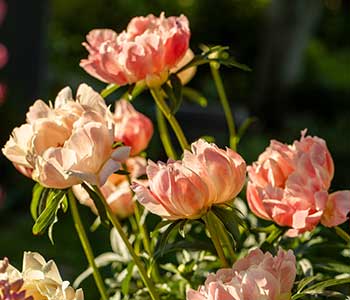
Cheers to life: White wine and champagne can protect our hearts
These lines are intended as a small counterpoint to the many anti-enjoyment, populist and often fear-driven health debates of our time. So it's all the more pleasing when a renowned medium like the Guardian counters this – with a well-tempered article that gives pleasure its rightful place thanks to a study. Thank you for that.
May 2025
Source:
Gregory, Andrew. Drinking champagne could reduce risk of sudden cardiac arrest, study suggests. In: The Guardian. 26 April 2025.
There is news that sounds almost too good to be true - and then there are studies that even confirm it. A recent study by the renowned Fudan University in Shanghai, China, published in the Canadian Journal of Cardiology, suggests that moderate consumption of champagne and white wine can significantly reduce the risk of sudden cardiac death. The Guardian recently revealed the results of this study.
Sparkling wine, a positive outlook on life, eating more fruit, a healthy body weight and education reduce the risk of sudden cardiac arrest, according to the world's first study of its kind. The study analysed data from over 500,000 people from the UK Biobank and identified 56 modifiable risk factors for sudden cardiac arrest and analysed the lifestyle, physical activity, psychosocial factors, socioeconomic status and local environment of these individuals.
It provided convincing evidence that the targeted modification or optimisation of these factors could prevent a large number of cases. By improving the worst third of these factors – such as high blood pressure, lack of exercise or chronic stress-up to 40% of cases could be prevented; for the worst two thirds, which are also characterised by factors such as smoking, obesity or social isolation, even up to 63%.
Particularly noteworthy is the finding that not only red wine, but also champagne (or sparkling wine in general) and white wine could have heart-protective properties. Possible reasons for this lie in antioxidant ingredients such as polyphenols, but also in the stress-reducing effect of moderate consumption. This contradicts the previous assumption that only red wine offers such benefits. However, the researchers urge caution: the exact mechanisms are still unclear and raise many questions. The development of sudden cardiac arrest is often the result of a complex interplay of genetic predispositions, existing pre-existing conditions, environmental factors and behaviour. The development of effective and broad-based prevention programmes is correspondingly challenging.
But beyond all the research, one simple truth remains: Enjoyment – whether in a glass, on a plate or in the moment – makes life more worth living. Those who enjoy with mindfulness live more consciously. And those who live more consciously may not only protect their heart, but also their soul.
In a world in which health advice often oscillates between sacrifice and pleasure, this study offers a refreshing perspective. Perhaps it's time to rethink our prevention strategies – with a glass of champagne in hand, a smile on our face and the quiet certainty that real pleasure is never just a luxury, but an art of living.
And logically, alcohol consumption should always remain moderate. The study emphasises the importance of a healthy overall package – with exercise, nutrition, mental activity and social integration. A sparkling glass of alcohol can contribute to better health, but it is not the whole story. And it only applies to healthy adults.




